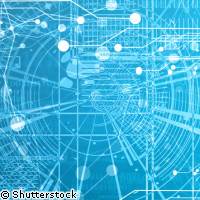ICT to the rescue of Europe's carbon footprint
The European Commission has adopted a communication outlining the role that information and communication technologies (ICT) should play in improving energy efficiency and reducing Europe's carbon footprint. Much of the focus is on the need for reinforced ICT research to improve the efficiency of computer components, as well as Europe's power grids, homes, buildings and lighting systems. This latest communication, entitled 'Addressing the challenge of energy efficiency through Information and Communication Technologies', fits into the overall goal of the European Union to transform itself into a low-carbon, high energy-efficiency economy. To do so requires decoupling continued economic growth with energy consumption. It is estimated that if nothing changes, EU energy consumption will rise by 25% by 2012, resulting in a substantial increase in greenhouse gases. 'But emerging changes offer the possibility of modernising the European economy, towards a future where technology and society will be attuned to new needs and where innovation will create new opportunities,' says the Commission. 'ICTs will not only improve energy efficiency and combat climate change, they will also stimulate the development of a large leading-edge market for ICT-enabled energy-efficiency technologies that will foster the competitiveness of European industry and create new business opportunities.' To kick start this process, the Commission calls for research into improving the energy efficiency of several specific areas, starting with ICT itself. 'The ICT industry is in a unique position to demonstrate leadership in reducing its footprint, [...] by leading the way in identifying and creating efficient solutions for other socio-economic sectors to follow,' reads the communication. Research should therefore focus on new ICT technologies and applications that have a high potential for energy efficiency, as well as on reducing the energy intensity of current ICT technologies and components, including computer displays and power electronics. Putting ICT to work to better manage Europe's power grid is also highlighted in the Commission document. The energy transformation sector, dominated by electricity generation, uses around one-third of all primary energy. To make energy savings, research actions will concentrate on cross-cutting disciplines, such as hardware components, monitoring and control, the management of complex power systems, intelligent metering and distributing generation. These actions could be further supported, suggests the Commission, by an exchange of good practices and large-scale pilots on ICT-enabled distributed generation systems. More than 40% of Europe's energy consumption is building-related. Given that the greatest savings are to be made in residential and commercial buildings, the Commission suggests that research should focus on energy management systems for both new and old buildings. These energy management systems, which include smart metering and advanced visualisation, can continuously gather data on what is taking place in a building and how its equipment is operating, feeding it into a cognitive control system to optimise energy performance. By heightening energy consumption awareness, the Commission expects that these systems will stimulate behavioural changes both in households and businesses. It is estimated that about one fifth of the world's electricity consumption is for lighting, presenting a major potential for savings. Research into smarter indoor, outdoor and street lighting will therefore also be encouraged by the Commission. A promising area already under development is organic light-emitting diodes (OLEDs), which can be used for large scale lighting. These have the advantage of possessing a uniformly diffuse-emitting surface, while remaining very energy-efficient and environmentally safe. Playing a central role in meeting these research goals will be the Seventh Framework Programme, as well as national research programmes, says the Commission. Furthermore, support should be given for the deployment of the results of this research through national and regional programmes, the EU Competitiveness and Innovation Programme and other relevant operational programmes.



